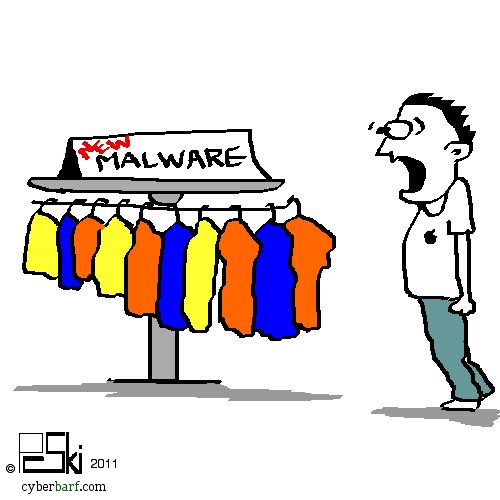cyberbarf
FREE
ON BOARD ARTICLE
Why
anyone would give away their services for free to a for-profit enterprise
based on the net has always been a strained proposition. Out of work
journalists gravitated to the new medium that was allegedly destroying
their own brick and mortar print shops as a way to continue writing.
And the internet vultures were present to feed on their career insecurity
as a means to take free labor for the illusionary promise of global
work exposure.
It
is the worst caste system in modern times. The web publishers suddenly
have their own Internet stock bubble as their sites are suddenly worth
millions of dollars on the back of unpaid contributors. And when these
web publishers sell out to larger media enterprises, the money only
flows into their bank accounts, and nothing trickles down to the unpaid
serfs who put the value content on the site. It is a reversion to
the nobles living large in their new media castles lording over their
serfs toiling bytes of the infinite information fields.
The
nobles appear to set themselves above the law. They stress that the
writers volunteered their services. Free work was always a part of
the program. Their sites would drive traffic to their stories. The
allure of fame drove the writers to work for free. But when the Huffington
Post cashed out to AOL, those writers were angry. They did not receive
the fame or fortune for years of service. Reality hit home: bloggers
can't make a living. But publishers who use bloggers can make a killing.
Lost
in the moral discussion of the free blogger-writer Internet publishing
model is the legal aspects of worker rights. Are these bloggers employees
or independent contractors? Are they unpaid interns receiving the
benefits of some specialized training? In most situations, the bloggers
should be classified as site employees.
The
Internal Revenue Service has promulgated a twenty factor test to determine
whether a person is an employee or an independent contractor. This
designation is important to the IRS as it determines which party is
responsible for payroll and employment taxes. The factors boil down
to three areas: control, organization and economic reality.
In
the unpaid web content provider, control is defined as whether the
web site owner or the blogger has control over the work being performed
for the site pages. If the blogger is required to comply with instructions,
guidelines, and how he or she is supposed to work, the blogger would
be considered an employee.
If
the blogger's services are integrated into the web site owners operations,
this tends to support an employer-employee relationship, especially
if the business's success or continuation depends to a large extent
on the performance of the blogger's services.
If
the blogger's services are subject to supervision, editing or assignments
from the web page owner or his employees, the blogger is an employee
because of the control asserted by the web site operator over the
means and methods of the services being provided the site.
There
is a presumption that if one is working substantially full time for
a person, so he or she is not able to work for another company, then
an employee relationship is assumed.
If
these aggregation blog sites that rely upon unpaid content providers
for their business model, then those contributors could be classified
as employees under federal law. If that were to happen, the employer
would be subject to all employment laws: wages, overtime, benefits
and civil fines and penalties for failure to pay employment taxes.
The
U.S. Department of Labor has been cracking down on the use by business
of unpaid interns. The criteria for an unpaid internship are strict:
1.
The internship, even though it includes actual operation of the employer's
facilities, must be similar to training which would be given in an
educational environment;
2.
The internship experience is to the benefit of the intern;
3.
The intern does not displace regular employees, but works under close
supervision of existing staff;
4.
The employer that provides training derives no immediate advantage
or benefit from the activities of the intern;
5.
The intern is not entitled to a job at the conclusion of the internship;
and
6.
The employer and intern understand that the intern is not entitled
to wages for time spent on the internship.
It
is interesting to note that educational credit is not a factor in
the Department of Labor test. Many professions have used interns as
unpaid clerical staff, displacing the need for paid secretaries, clerks,
gophers, runners or technical staff.
Under
the guidelines, a person writing content for a web site for publication
is taking the place of a paid staff member. The web site owner is
receiving an immediate benefit from the postings as fresh content
drives traffic to the advertising on the pages. In most instances,
the intern is not training for anything; they are already professional
(though displaced) writers, photographers, artists or journalists
who already know their craft. It would be difficult for a web site
publisher to classify their unpaid writers and bloggers as legal unpaid
interns.
cyberbarf
PERSONAL
CLOUD LIBRARIES ARTICLE
Sir Paul McCartney is at it again. After the Beatles collection
has gone digital, he has decided to put his personal collection in
cyberspace. HP announced that it has uploaded McCartney's non-Beatle
music, video, photographs, artwork and personal items into their cloud
servers. The reason was simple: Sir Paul wanted to access his stuff
“ from anywhere.”
It
is an interesting concept that a multimillionaire would want to have
access to his intellectual property on a real time basis in digital
form. This is a private library collection that the owner would have
access 24/7. The original items would remain stored in physical warehouses.
It is hard to tell whether this is brilliance, ego or both.
The
cloud service providers are trying to convince people to port their
lives onto their servers. It is the future, they say. A future fraught
with dangers. The cloud service providers have not fully addressed
the pitfalls that technical and legal experts have thrown at them:
Legal
ownership of the data on the cloud servers.
Security
of the data on the cloud servers.
The
privacy of the data on the cloud servers.
Ability
of the cloud host to deliver and maintain access and storage requirements.
The
liability for down time/inaccessibility.
It
may be one thing for a famous artist to digitize his works into a
private cloud library with limited daily access to his files. But
it is another thing for a large global bank transacting tens of thousands
of customer transactions on a daily basis to not know whether the
cloud is secure, private, guarded and won't crash every fifteen minutes.
There
was a study that of all the iTunes downloads, 81 percent of that music
is never listened to by the music collector. The conclusion that we
only listen to approximately 19 percent of our music collection is
a stunning cultural find. People tend to hoard content but rarely
use it. The hoarding of content means taking up space, whether it
be real (storage units) or virtual (cloud servers). If a sudden and
expensive expansion of the new cloud network hardware centers is really
only going to archive 80 percent of the data, then the economies of
scale and the need to provide the service seem unrealistic to the
average person.
While
typing this, I pulled from the desk drawer “Let It Be” CD.
It has not been played for years, but I knew I had it. You put in
the re-mastered disc into the CD player and the music experience is
immediate. With the advancements in flash memory, iPods and Shuffles
can contain thousands of songs - - - more than any one can listen
to in one sitting. You don't need to have a computer, hardline or
wireless access to a cloud host, and a route to the cloud servers,
just to play the same song that is on a CD or iPod. Maybe there are
times where you just have to let it be.
cyberbarf
JAPAN
STATUS PODCAST


cyberbarf
HACK,
HACK, HACK COMMENTARY
Sony's PSN must now stand for Pirate Sentry Nation. The Playstation
Network has been hacked several times, sending global gamers into
a funk.
Sony
was the electronics leader in the 1990s. It has been a slow descent
since several notable fumbles like the betamax and the Walkman (when
the world was going to digital music players). It held hope on its
gaming hardware platforms, which turned into respectable machines.
The multiplayer on-line universe was large enough for Sony to create
its own.
But
success put unwanted attention on Sony's game network. Attention from
malicious hackers who have taken down the system three times. The
first major hit was the identity theft of users personal data information,
and possibly credit card information. This attack led to the complete
shut down of the network. Several days later, Sony tried to get PSN
back live, but there were still major security holes that were quickly
exploited. The third attempt to re-start the system, by sending new
passwords to old users, had its own critical logic flaw: the hackers
had the email information and pass codes.
Sony's
management blamed a hacker collective for its problems, which that
community denied. Some believe that the malicious attacks on Sony's
infrastructure is a form of consumer revenge for game hardware manufacturers
going after people who mod their consoles to play unauthorized games.
The disruptive attacks have been compared to the property damage protests
of PETA or Greenpeace.
However,
the theft of personal credit information goes beyond the bounds of
civil liberty protests. Identity theft is the fastest growing white
collar criminal crime. It is the equivalent of robbing a bank without
the hassle of donning a sky mask, buying a gun and rushing in and
out of a secured financial institution. Even if the thieves do not
use the credit card information, they turn around to sell it to secondary
criminals who use or manipulate the data bases for money laundering,
property theft, spam lists or data mining.
Sociologists
complain that if these tech savvy hackers would put their talents
to productive uses, our society would have cured cancer or landed
a man on Mars by now. That may be a candyland view of the global realities.
The planet is under pressure from a highly educated, high unemployment
global economic recession. Underemployed people throughout the world
are angry at their governments, the authority figures, as stealth
inflation is sending them into long term poverty. At a certain point,
scam artists believe they have no choice but to bend the law or set
aside their moral codes.
Observers
believe that these problems will continue to grow in number and intensity.
The Macintosh community has been the recent target of malware. A fake
security pop up appears on Macs, claiming that it MacDefender anti-virus
software that can be activated with a simple download. This is a false
statement. The whole purpose is to confuse the naive user to download
a trojan program. Now, Apple has downplayed the existence of virus
and malware as part of its OS. Apple store employees are trained to
deny the existence of Mac security issues. You have to press them
to bring out a Norton Anti-Virus product from the store room since
it is not displayed on the software shelves.
NO
platform is immune from bad behavior. The use of card swipe theft
devices is rising at retail stores. Illicit taps on ATM machines are
a growing concern. The misappropriation of large corporate client
payment information has been long considered an inside job by disgruntled
IT workers. This risk increases with the more open and portable personal
information is on smart phones and e-commerce payment processing systems.























